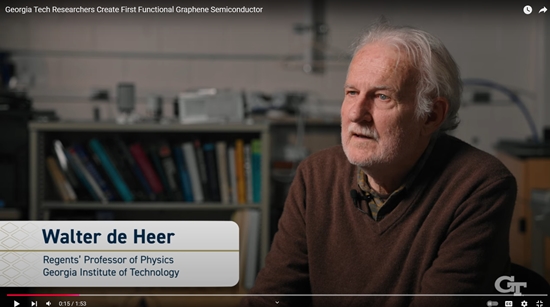
The Washington Post reports that Georgia Tech broke off research collaboration with a university in Shenzhen after the House Select Committee on the Chinese Communist Party and other committees publicly criticized the partnership as a threat to national security.
Steven McLaughlin, a Georgia Tech official, told the Post that the committee’s allegations “are all unfounded” and suggested that the collaboration was mostly about running a Georgia Tech campus in Shenzhen rather than about sharing funds or research.
Is this controversy just about a study-abroad campus?
PLA ties
The CCP Committee’s allegation focuses on research into graphene semiconductors. The committee alleges that Georgia Tech and Tianjin University shared research on this emerging technology, which has significant military applications that could benefit the People’s Liberation Army:
“The Georgia Tech-Tianjin University graphene semiconductor research occurred through a joint laboratory between the Tianjin University International Research Center for Nanoparticles and Nanosystems (Tianjin Nanosystems), of which a Georgia Tech professor served as director, and the PLA-linked company Bright Stone Innovation Technology Group. One Bright Stone majority-owned subsidiary is a PLA supplier, while another majority-owned subsidiary has contracted with a now-sanctioned Iranian company. Tianjin Nanosystems also set up a joint lab with Beijing 718 Yousheng Electronics, which has submitted at least 490 bids to PLA entities including the China Aerospace Science and Technology Corporation (CASC). CASC is a major state-owned PLA contractor focused on space and missile technology.”
In January 2024, Walter de Heer, a professor of physics at Georgia Tech, and a number of Chinese colleagues from Tianjian University published an article in Nature on their discovery. According to a Georgia Tech video on the research, ten years of modifying graphene have finally resulted in a semiconductor material that has ten times the mobility of silicon.
Professor de Heer explains the importance of graphene semiconductors: “The good thing about graphene is not only can you make things smaller and faster and with less heat dissipation, you’re actually using properties of electrons that are not accessible in silicon. So this is really a paradigm shift. It’s a different way of doing electronics.”
Ignorant?
Is Georgia Tech Provost McLaughlin merely ignorant of the graphene research or that the effort to focus on the Shenzen campus is a way of distracting from the severe implications of Georgia Tech’s technology sharing?
In defense of Georgia Tech, one could point out that the status quo of US-China relations only fully shifted gears during the Trump administration; and, surely, a lag in making comparable shifts of policy in American institutions is unsurprising. But Georgia Tech has also recently found itself subject to a Justice Department indictment for cybersecurity violations at a lab doing contract research for the Department of Defense.





